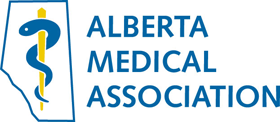Possible changes to Health Professions Act: Self-regulation concerns
August 6, 2020

Dear Members:
We have received a consultation document from government regarding proposed changes to the Health Professions Act.
Please note that the possible amendments have been released as options for discussion, not certainties. That acknowledged, in our assessment, some of the options presented in the discussion paper suggest a wholly new, government-led approach to licensing and complaints registration. As far as we know, this approach is unprecedented in Canada.
I am sending you our initial review as some of the possible amendments are a serious threat to self-regulation of physicians if implemented.
Self-regulation is essential to physicians’ ability to meet our professional responsibilities to patients. I have not yet heard how the other 29 regulated health professions are responding to this discussion paper. For our part, physicians will want to consider the major implications of what government is exploring.
I would like to hear from individual members if you have input to provide on this issue. Please weigh in with your thoughts and any concerns. You can contact your representative or email lyle.mittelsteadt@albertadoctors.org. We need to hear from you by August 14.
In your service,
Christine P. Molnar, MD, FRCPC
President, Alberta Medical Association
AMA Commentary and Review by Dr. Lyle Mittelsteadt, Assistant Executive Director, Professional Affairs
The AMA, along with all of the Colleges under the Health Professions Act, have been asked to provide commentary on proposed changes to the HPA. The changes are wide sweeping and dramatic. Some would see the loss to all health professions of self-regulation by the Colleges, leaving them with a minor role to play in assessing and insuring competence.
We are seeking member input to the draft proposals and offer the following preliminary analysis of each component to aid in your review:
1. Enhance the ability of government and regulated health professions to respond to public emergencies
The AMA sees this proposal as premature and unnecessary. We do support that, once the pandemic is over, there should be an evidence-informed review of how we did and how we can improve in the future. However, we are still in the midst of the COVID-19 pandemic and challenges in addressing its implications are ongoing. At this point, it would seem that Alberta has fared and responded well to this pandemic. We are of the view that the current legislation provides sufficient powers to government and the Colleges to effectively address this type of emergency. Additional legislative and regulatory powers are unnecessary and should be avoided. Expanding such authority at this time would appear to be an opportunistic power grab which would not be justified based on experience to date.
2. Mandatory separation of Colleges and Associations
The AMA is supportive of this proposal. The medical profession has benefited from a strong College and a strong Association to balance the roles of each in supporting both the profession and the public. We have evolved into an effective relationship with strong advocacy abilities and a mutual respect. It is essential, however, that means be put in place (especially for smaller Colleges) to provide for an effective association role whereby the association can advocate for their respective profession within the HPA. There should be exploration regarding how unions can work effectively in this role with the Colleges in professions where the large majority of its members are union represented.
3. Enable and enhance the regulation of multiple professions within Colleges
It may make sense for some smaller Colleges to amalgamate to allow efficiencies and to provide the scale necessary to meet the requirements of a College under the HPA. It is imperative that such changes be evolutionary and voluntary. Government, or other outside agencies, should not mandate an amalgamation of Colleges. Professions should have careful deliberations with their members and receive their support before moving forward with such a change.
4. Establish a centralized registry of health professions in Alberta
The AMA is strongly opposed to this proposal in any form. Option 2, which would see government overseeing the registration role for all health professions, would result in the death of self-regulating health professions in this province. We would be the only Canadian jurisdiction to do so. Government does not have the expertise or experience to evaluate the educational and regulatory requirements for each health profession or to evaluate the quality of educational facilities throughout the world with respect to whether they meet Canadian requirements for recognition in our province. Such a change in the HPA would further deteriorate the relationship between government and its health professions to an untenable level. Founded on trust of the public to provide quality medical care to themselves and their families, the health professions have been granted special status under the HPA because of their unique expertise in a particular area of medical care. Each profession relies on the expertise and professionalism of the others to work together in a complex medical system in an integrated and effective manner. Registration is an essential component of ensuring that continued expertise for each profession.
Option 1, which would see development of a centralized registry, is in our view a needless expansion of bureaucracy which would add to the cost for taxpayers without any reasonable benefit to either the public or to the functioning of the health care system. We expect its utilization would be minimal.
5. Revise the professional complaints and discipline process
This proposal offers three options, one of which would see government taking over the complaints process for all health professions. Option 1 proposes a centralized registry for complaints. In the view of the AMA, this is again unnecessary bureaucracy. As the vast majority of health professionals in the province operate within Alberta Health Services or Covenant Health, there is already an effective centralized complaints process for public concerns relating to a member of one of the Colleges. Triaging of these complaints to either within AHS/Covenant or referral to the responsible College is already taking place. Option 2 would see government taking on some complaints and triaging others to the responsible College, and option 3 would see government handling all complaints. Both of these options would again see the effective loss of self-regulating professions within the province, something that has not occurred anywhere else in Canada. We strongly oppose both options and have seen no evidence that the government has the expertise or the resources to perform this function. A complaint against a health professional must involve evaluation by one’s peers, plus members of the public. This ensures that the evaluators understand the professional standards and the expectations and conditions under which the health professional works. The health professional should trust that any hearing or investigation will be impartial and objective and free of political influence. Only a professional College can fulfill such a role.
6. Banning female genital mutilation
The AMA supports this proposal. This is a criminal offence in Canada. Currently, if convicted of a criminal offence, a physician would lose their license to practice.
7. Authorize the performance of restricted activities through Lieutenant Governor regulation rather than professional regulations
The AMA is strongly opposed to this proposal which would facilitate rapid changes in scopes of practice without meaningful evaluation of 1) their safety, 2) their necessity in improving the functioning of our health care system as a whole and 3) the effect on other health care professions. This rapid change in scopes of practice, facilitated by the HPA, has resulted in a deterioration of the relationships between health professions, a loss of continuity of care and increasing fragmentation in the care of our patients. There has been no proper evaluation as to whether such changes result in improved outcomes and efficiencies, or to increased cost and risk to our patients. In this aspect, the HPA fails to appreciate the unique roles and contributions of each health profession to the overall functioning of the health care system. Instead, it blurs distinctions and roles, resulting in confusion and often in communication failures. We would suggest a meeting with government and, in particular, the AMA before moving forward in this regard.
8. See comments in #7
9. Amend the common provisions of the HPA
We will defer comments on this section to the affected Colleges.
10. Competence programs
The CPSA currently performs the functions outlined within this proposal and we support that work within the Colleges with one provision: competency assessment should be evidence-based and should not place unreasonable expectations or requirements on a practitioner that may negatively affect their ability to provide patient care. One method of ensuring that this is done reasonably is to ensure that the professional associations are supported in their advocacy roles by both government and the profession.
11. Enable Colleges to address the use of professional title
We do object to the area in this proposal, which would amend section 128 (12) to allow social workers, RNs, and RPNs to use the title “psychotherapist”. Some, but not all, of the referenced professions may have special training to allow them to do some counselling at a certain level of competency, however the term “psychotherapist” has a public connotation that falsely suggests a trained psychiatrist and this will cause confusion. A different term should be sought.
12. Regulations by Lieutenant Governor in Council
We cannot support this proposal. As demonstrated by recent events, placing too much authority for such changes with a particular Minister has been shown to be fraught with political interference in clinical roles and activities.
13. Allowing professional corporations
We support this proposal.
14. Allow miscellaneous changes to the HPA
We cannot support this without direct consultation by government with the AMA on the rationale and implications of each proposed change that relates to physicians.
15. HIA applies to all health professions
We agree.
16. Allow Minister to form ad hoc committees under the HPA
We agree with the proviso that such committees should ensure cultural and gender diversity, as well as a commitment that members are free of political party affiliation.
17. Formally establish the Alberta Federation of Regulated Health Professions under the HPA
We agree.
Thank you for your support in reviewing this lengthy but extremely important review.

13 comments
Commenting on this page is closed.
This comment has been deleted.
This comment has been deleted.
This comment has been deleted.
This comment has been deleted.
This comment has been deleted.
This comment has been deleted.
This comment has been deleted.
This comment has been deleted.
This comment has been deleted.
This comment has been deleted.
12>>